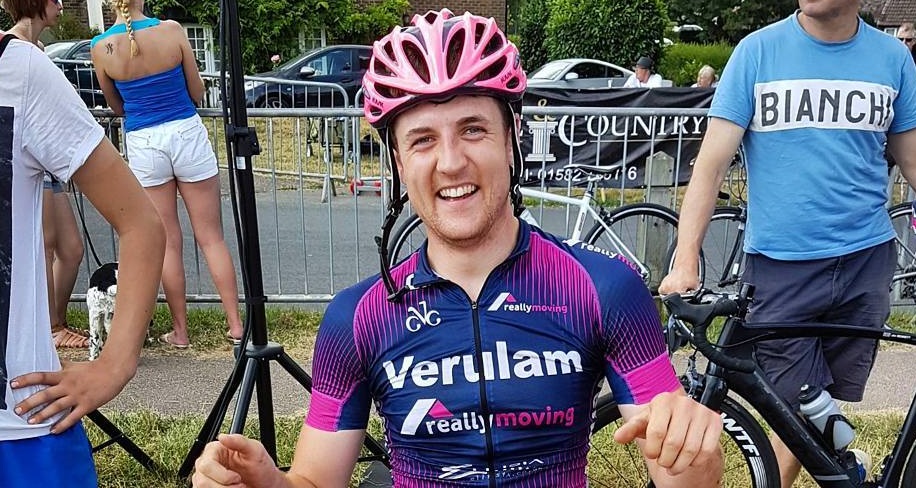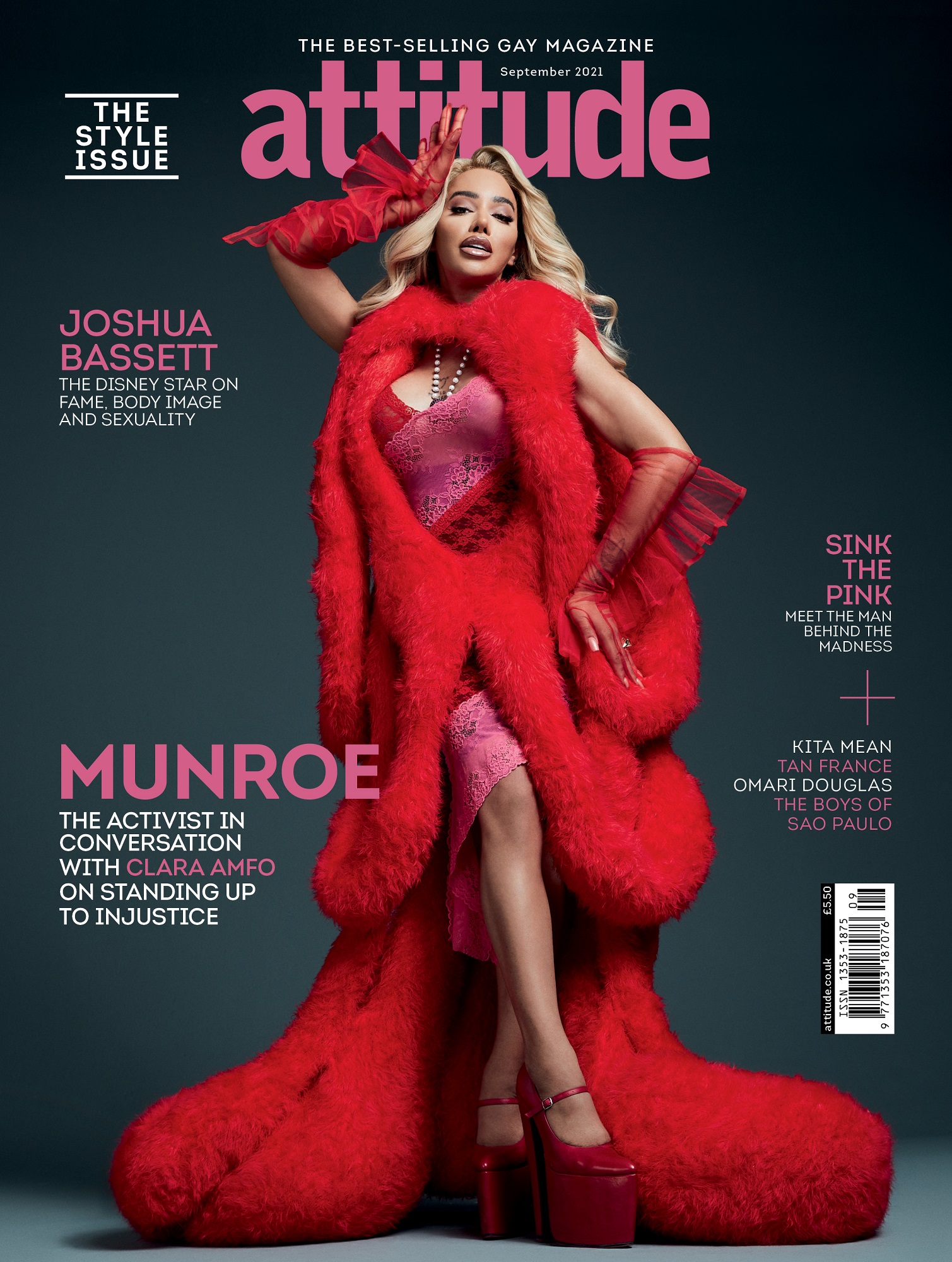British cyclist Clay Davies comes out publicly as gay
The sportsman has criticised British Cycling for failing to offer support since he opened up publicly about his sexuality last month.

Words: Alastair James; pictures: Instagram/@clayddd
The British cyclist, Clay Davies, has criticised British Cycling for not reaching out to him after he became the first active British male elite road cyclist to come out in July.
The rider, 29, who is part of the Spirit BSS Bontrager team, who is a surveyor in his day job, discussed coming out and the response he’d had. Since then, he says he’s not had any support from the organisation in charge of cycling in Britain.
Davies has been out to friends and family for seven years but has only recently come out publicly.
“It’s shocking”
Speaking to the Quicklink daily cycling podcast about coming out in an article for British Continental, Clay Davies said the feedback had been “entirely positive”. He explains that he’s had hundreds of messages with people coming out to him confidentiality as a result.
“The day of it going live, my phone did not stop pinging […] and it didn’t really stop for four days […] People from all walks of life, cyclists, non-cyclists, all over the world. It’s been fantastic.”
He said he’d had a couple of messages, including from one amateur cycling team manager saying he didn’t get the “fashion of people coming out all the time”, and one from another cyclist. Throughout the podcast, Davies discusses the issue of homophobia in sport and the “lad culture” that persists in the sport, and that the sport’s governing bodies don’t do enough on the issue.
View this post on Instagram
“It’s shocking, to be honest, that British Cycling (BC) haven’t reached out to me directly. It’s been three weeks now.” Comparing the response to his own employer (which is unnamed) Clay says that if they sold mouldy eggs people would understandably complain and get a response.
“How hard it is for BC to do that? They’ve got my contact details. My name’s not exactly difficult to find, is it? How hard is it for them to send me a one-liner to say, ‘Yes we’ve read it, yes we’re on it, we will get back in touch if we need anything from you’? But, not had a thing.”
“They just need to start from scratch really”
When asked what BC could do to counter issues for LGBTQ people in cycling, Clay offers a pessimistic appraisal of the current situation. “My view is we’re starting from pretty low baseline of understanding with BC. They’re 10 years in the past. Probably more, to be brutally honest. I think it’s all about the management there, understanding what the issue is properly with the right quality of staff dare I say it. Then them getting a plan of action in place.”
He relates an account he’s heard from an anonymous rider in the young people’s training programs that there shouldn’t be hesitation if someone sees or hears something. “It’s my view that if a coach hears something, that rider should be suspended instantly, a week a day, instantly […] It’s things like that.”
“They just need to start from scratch really. I gather they have some sort of diversity board type thing. But unless it [#LGBTQIA+ prejudice] is […] near the very top of the priority list and linked to dare I say funding and sponsors,” then much wouldn’t change Davies added.
Asked by the interviewer whether people would assume that BC would reach out to LGBTQ organisations to create a policy Clay says he’s been in touch with one such group. “I’ve been in touch with the Pride Out guys and I believe they did send an email to BC, which I have seen snippets of, and I wouldn’t exactly say the response they got was satisfactory, to be honest.
“I think the follow-up email Pride Out sent echoes that. It [BC’s reply] wasn’t ideal, shall we say? Which loops back to the complete lack of understanding of the issue.”
On what other people need to do, Clay says the “softly, softly” approach that works best and to keep the conversation going. Towards the end of the podcast, Clay says he’s had a slightly off response when seeing people at cycling events, with some people seeming to be uncomfortable around him. However, Clay says he no longer cares but is hopeful that things will continue to improve.
UPDATE:
When approached for comment a spokesperson for British Cycling said:
“The concerns raised by Clay and others in recent weeks are deeply upsetting, and as the national governing body for cycling we fully understand our responsibility to ensure that ours is a sport which is open and accessible for all.
“Earlier this year we appointed our first independent Diversity and Inclusion Advisory Group, and have since published a landmark long-term strategy to guide our work in this space in the years ahead. While we acknowledge that our sport still has some way to travel to be truly reflective of Britain’s diverse communities, we are absolutely committed to working with others to be a positive force for change.
“We have reached out to Clay and hope to discuss his experiences in more detail in the near future, and we would encourage anybody in our sport who is subject to or witnesses any type of discriminatory or inappropriate behaviour to report it to the British Cycling Compliance team, so that we can take the appropriate action and send a clear message that homophobia and transphobia will not be tolerated in our sport.”
The Attitude September Style Issue, is out now.
Subscribe in print and get your first three issues for just £1 each, or digitally for just over £1.50 per issue.

